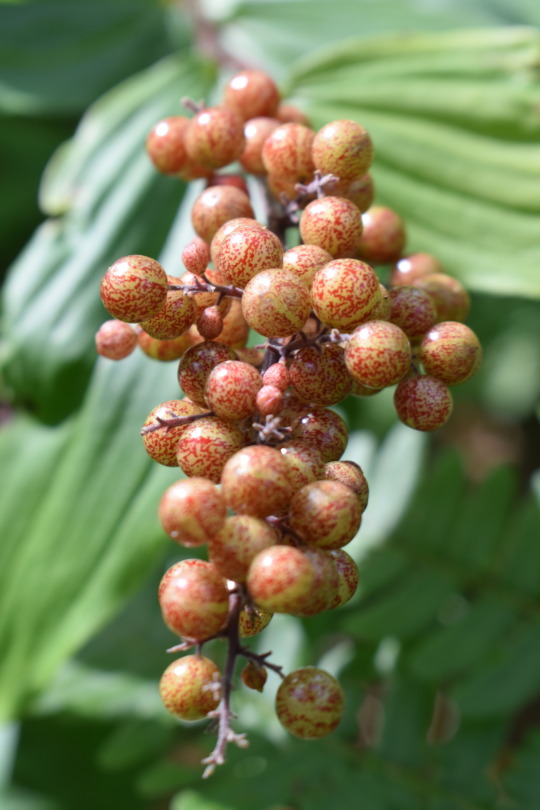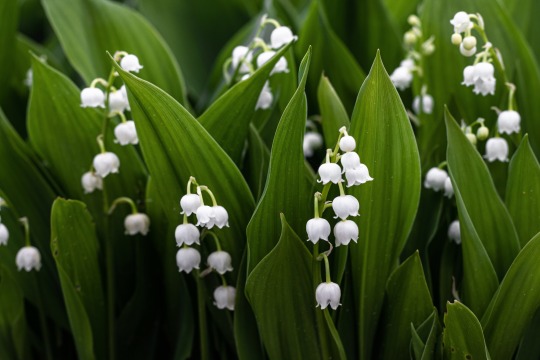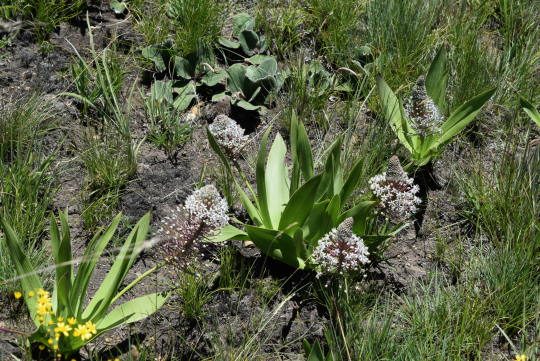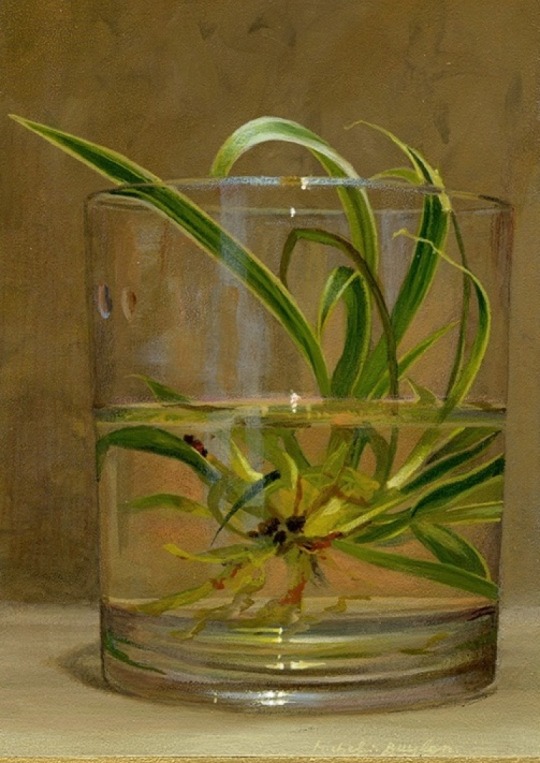#asparagaceae
Explore tagged Tumblr posts
Text


Albuca juncifolia
Albuca is a large genus of bulbs, formerly put in the Hyacinth Family, but now placed in the subfamily Scilloideae within the large Asparagus Family. Quite a few species occur in the winter-rainfall region in the western part of South Africa, as is the case with A. juncifolia. It grows during the winter months, then flowers in the spring before going dormant over the long dry summer. The way the outer 3 tepals spread, while the inner 3 are clasped together, is typical of the genus,
-Brian
22 notes
·
View notes
Text








Blue funnel-lily (Androstephium coeruleum). I observed more flowers this year, and the population at this site is larger that I thought. Looking back, I think the mild winter of 2023-2024 resulted in a subset of individuals blooming in mid-February, and I just didn't catch most of the March bloom.
79 notes
·
View notes
Text

Agave x 'Kissho Kan' / 'Kissho Kan' Agave at the Sarah P. Duke Gardens at Duke University in Durham, NC
#Agave x 'Kissho Kan'#Agave#asparagaceae#Kissho Kan agave#Succulents#Plants#Nature photography#photography#photographers on tumblr#Foliage#Sarah P. Duke Gardens#Duke Gardens#Duke University#Durham#Durham NC#North Carolina#🌺🌻
167 notes
·
View notes
Text

Scilla autunnale (Prospero autumnale (L.) Speta, Asparagaceae)
#photographers on tumblr#digital image processing#original photographs#flowers#Asparagaceae#digital watercolor
43 notes
·
View notes
Text

A mat-rush flower (Lomandra sp.) in Lane Cove River Park, Australia
by John Turnbull
63 notes
·
View notes
Text

False Solomon's Seal Maianthemum racemosum Asparagaceae
Photograph taken on August 13, 2023, at Pinery Provincial Park, Ontario, Canada.
#wildflowers of southern ontario#False Solomon's Seal#false solomons seal#berry#berries#Maianthemum racemosum#Asparagaceae#Maianthemum#wildflowers#pinery#pinery provincial park#ontario#canada#nature
87 notes
·
View notes
Text


Stilted Paper-lily (Laxmannia brachyphylla). A small tufted, stilt-rooted perennial herb from the south coast of SW Western Australia.
9 notes
·
View notes
Photo


..
#flowers#plantcore#gardening#cottagecore#natur in deutschland#original photography#convallaria majalis#flowercore#asparagaceae#original photographers#blumen#garden#garten#spring#frühling#lily of the valley#maiglöckchen#plant aesthetic#nature photography#botany#botanical#flower#cottage aesthetic#floral#floral aesthetic#springtime
96 notes
·
View notes
Text

Sand Lily Schizocarphus nervosus Highmoor, 3300, South Africa -29.317155, 29.616932 by alison_young
#botany#sand lily#schizocarphus#genus schizocarphus#south africa#south african plants#flowers#monocots#asparagales#order asparagales#asparagaceae#m#highmoor
12 notes
·
View notes
Text
The Great ACT-NSW-NZ Trip, 2023-2024 - Greymouth
The next stop was an overnight at the largest town in the West Coast region - Greymouth, with a population of 8,400 at last count. The area was first settled in the 1300s, but in the early nineteenth century iwi from the East Coast of the island had conquered the area to control the supply of pounamu (New Zealand Greenstone).

The Grey River is one of the short steep rivers that originate in the Southern Alps, and has managed to break through the coastal range. The area is also somewhat notorious for the katabatic wind known The Barber that flows down the gorge and through town, frequent flooding thanks to all the storms that blow in off the Tasman and get stopped dead by the Alps, and the number of shipwrecks on the sandbar at the rivermouth.
We had a short stroll around the estuary at sunset, but I didn't get many usable photos. The arse of the Weka that disappeared into the undergrowth wasn't particularly photogenic either.

Some of the species covered earlier, or from @purrdence's previous trip.







Greymouth, Aotearoa New Zealand
#new zealand plant#new zealand fern#new zealand beetle#trametes#pycnoporus#new zealand fungi#polypore#microsorum#oedemeridae#pyrrosia#polypodiaceae#Dendroconche#false blister beetle#cordyline#cabbage tree#Asparagaceae#polyporaceae
1 note
·
View note
Text
[ID: An oil painting of a spider plant propagule in a glass of water. End ID'

Shoot II - Michel Buylen.
Belgian, b. 1953 -
Oil on panel , 18 x 13 cm.
1K notes
·
View notes
Text


Lachenalia viridiflora
Most of the many bulbs in the genus Lachenalia come from the winter-rainfall area in western South Africa and adjacent southwestern Namibia, and the majority of these bloom during the winter. At the Ruth Bancroft Garden, the pinkish-red flowering Lachenalia punctata is always the first to bloom, with L. viridiflora following just after the winter solstice. The amazing turquoise color of the flowers is a crowd-pleaser! Lachenalia was formerly placed in the family Hyacinthaceae, but it is now put in the subfamily Scilloideae within the Asparagus Family.
-Brian
59 notes
·
View notes
Text

Yucca treculeana in Uvalde County.
17 notes
·
View notes
Text

Agave lophantha / Thorn-Crested Agave at the JC Raulston Arboretum at North Carolina State University in Raleigh, NC
#Agave lophantha#Agave univittata#Agave#asparagaceae#Thorn Crested Agave#century plant#Thorn Crested century Plant#Plants#Succulents#Nature photography#photography#photographers on tumblr#Jc raulston arboretum#north carolina state university#Ncsu#Raleigh#Raleigh NC#north carolina#🌺🌻
8 notes
·
View notes
Text

Scilla silvestre (Scilla bifolia L., Asparagaceae)
#photographers on tumblr#digital image processing#original photographs#flowers#digital watercolor#Asparagaceae
29 notes
·
View notes
Text
پیاز جنگلی
پیاز جنگلی نام : جنگلی پیاز کو ہندی میں کانڈا۔ عربی میں عنصل، بصل البر۔ فارسی میں اسقیل کہتے ہیں۔ Hakeem Syed Abdulwahab Shah Sherazi (تحریر و تحقیق: حکیم سید عبدالوہاب شاہ شیرازی) نام انگلش: Name: Urginea indica / Indian Squill Scientific name: Drimia indica Family: Asparagaceae پودا پیاز جنگلی Urginea indica Indian Squill Drimia indica जंगली प्याज जंगल प्याज़ تاثیری نام: مقام پیدائش: مزاج…
#Asparagaceae#Drimia indica#Indian Squill#Urginea indica#استسقاء#امراض جلد#بانچھ پن#پیاز جنگلی#پیٹ کے کیڑے#جالی#جذام#چنبل#حابس#دمہ#زہریلی#سانس#سوزش#قابض#کھانسی#محمر#مدر بول#مدر حیض#مقوی#مقوی باہ#منفث بلغم
0 notes